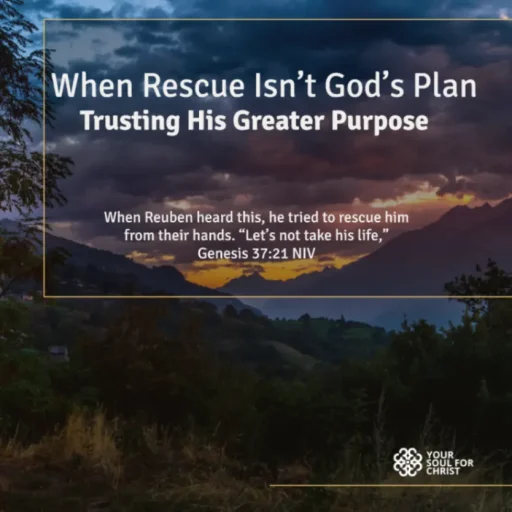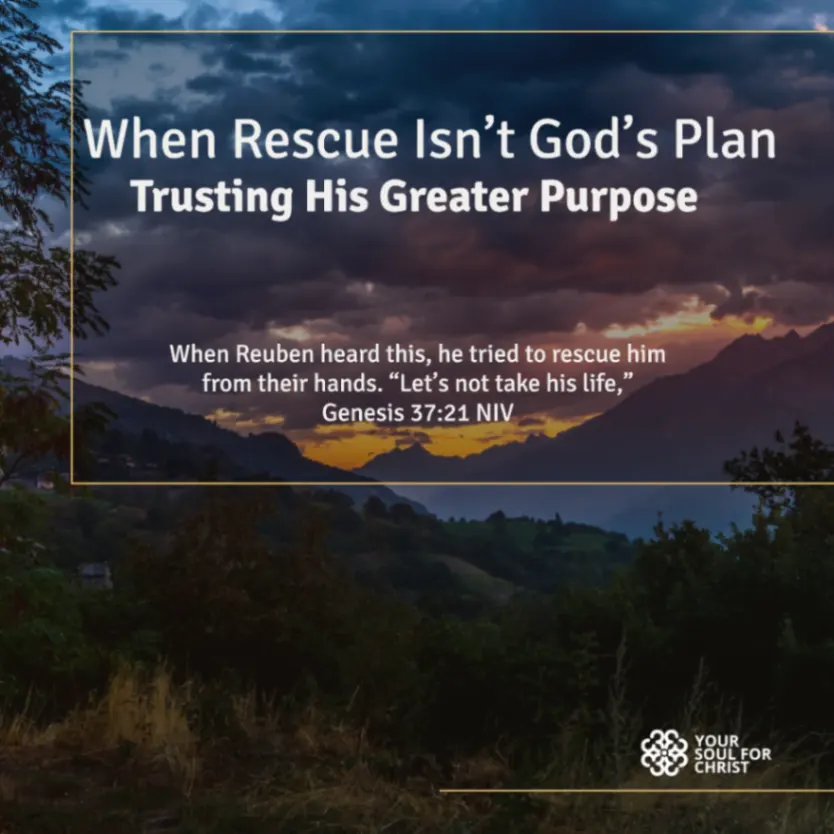When Reuben heard this, he tried to rescue him from their hands. “Let’s not take his life,” he said. “Don’t shed any blood. Throw him into this cistern here in the wilderness, but don’t lay a hand on him.” Reuben said this to rescue him from them and take him back to his father.
Genesis 37:21-22 NIV
When Reuben heard his brothers plotting to kill Joseph, he stepped in with an alternative. In Genesis 37:21, he pleaded, “Let’s not take his life.” Instead, he suggested they throw Joseph into a cistern in the wilderness, without laying a hand on him. His plan was simple—delay the murder and rescue Joseph later.
But Reuben’s plan was his alone. He didn’t reveal his intentions to his brothers. While they were unified in doing evil, Reuben’s heart stood apart. This moment in Scripture reveals something profound: there was division in intention among the brothers, yet unity in carrying out wickedness. Reuben did not want Joseph dead, but he still took part in a cruel act. And more tellingly, he remained silent during the deception that followed.
Meanwhile, when the brothers dipped Joseph’s coat in goat’s blood and lied to their father, claiming a wild animal had devoured him, Reuben did not speak up. Though he knew the truth, he kept silent.
This silence exposes a struggle that many of us still face today—the difficulty of standing for righteousness when it requires standing alone. Even when our hearts know what is right, fear, pressure, or uncertainty can cause us to keep quiet. Reuben’s behaviour highlights the subtle dangers of complicity: silence in the face of sin is, in itself, a form of sin.
Joseph’s brothers, like many today, were driven by their sinful nature—a nature not yet redeemed by Christ. When unchecked, this fallen nature is capable of terrible things: killing, lying, coveting, harbouring rage, and betraying even those closest to us. In this story, we see both ends of the spectrum—some ready to kill, others reluctant to do so, yet still willing to remain part of the evil plan.
Although Reuben’s involvement may seem like a lesser offence, it was still participation. And when they stood before their father, all the brothers had one voice in deception, regardless of their private thoughts.
God’s Purpose Through Pain
Imagine Joseph in that moment of betrayal—stripped of his coat, thrown into a pit, overhearing the plotting of those he called family. Surely, he hoped for rescue. Perhaps he pinned that hope on Reuben, the one who seemed to waver. But rescue never came.
Yet unknown to Joseph—and even to Reuben—God had a far greater plan. The betrayal, the pit, the sale into slavery were not detours; they were the path. His brothers sneered, “Let’s kill him and see what becomes of his dreams,” but their very actions pushed Joseph toward the fulfilment of those dreams.
What they meant for evil, God meant for good (Genesis 50:20). He took their wickedness and wove it into His redemptive plan, preparing Joseph to one day preserve a nation.
A Call to Trust God’s Way
This story reminds me that God’s plans often unfold in ways that defy logic. Reuben thought rescue was the solution. Joseph may have believed the same. But God knew that Egypt was the destination—that the very path of pain would become the platform for purpose.
Sometimes, the things we desperately try to avoid are the very things God uses to bring about His glory in our lives. He is not constrained by human schemes or intentions. Even harm can be used by His hand to help us.
I must learn to entrust my life fully into God’s hands—whether the journey is comfortable or not. When things don’t go as I expect, when betrayal strikes or hope seems delayed, I must not lose heart. God is still working.
If I allow Him to lead, to chart the trajectory of my life, I will see His glory revealed. As the psalmist declared, “I remain confident of this: I will see the goodness of the Lord in the land of the living” (Psalm 27:13, NIV).
No matter how broken the situation appears, God is able to transform it into a stage for His glory. That’s what He did for Joseph. That’s what He can do for me—and for you.

